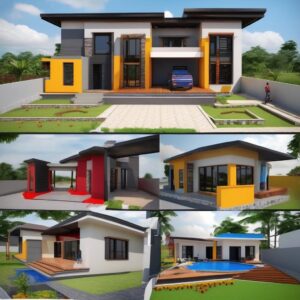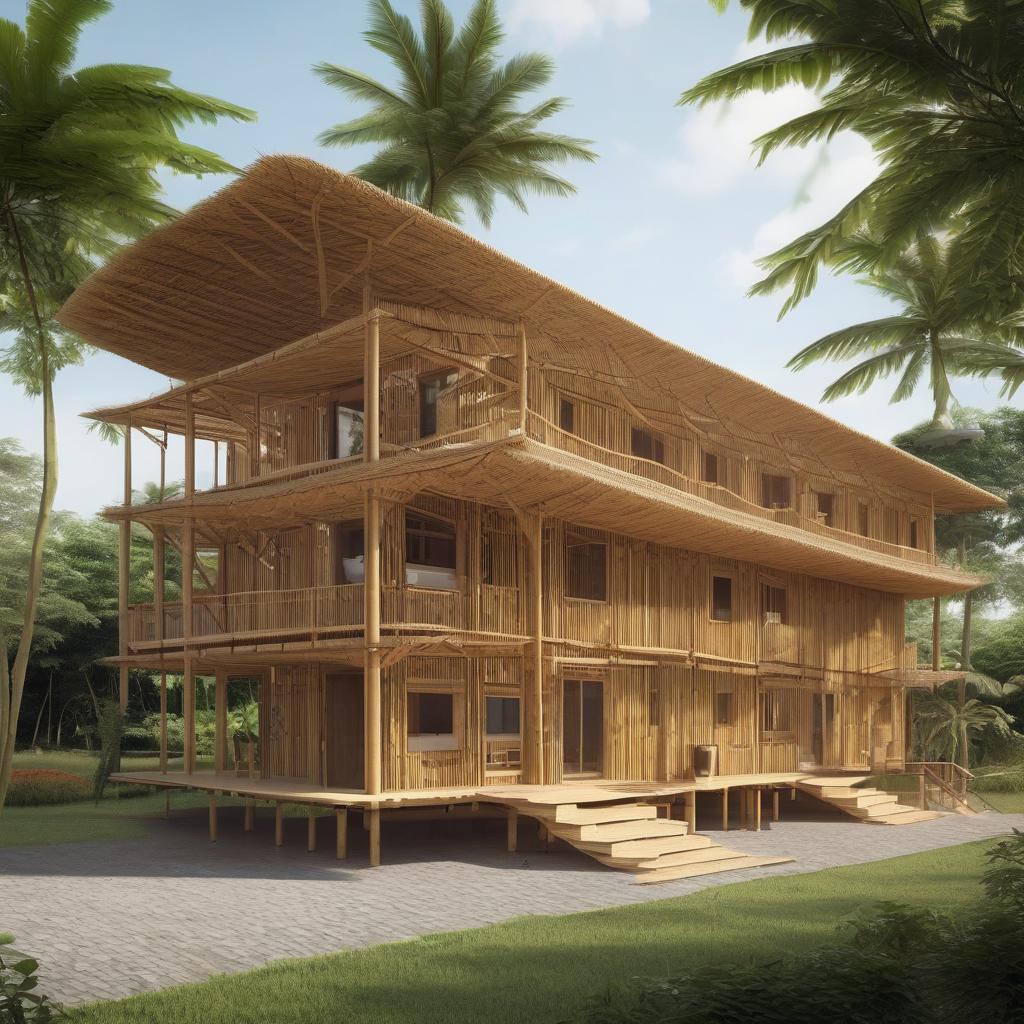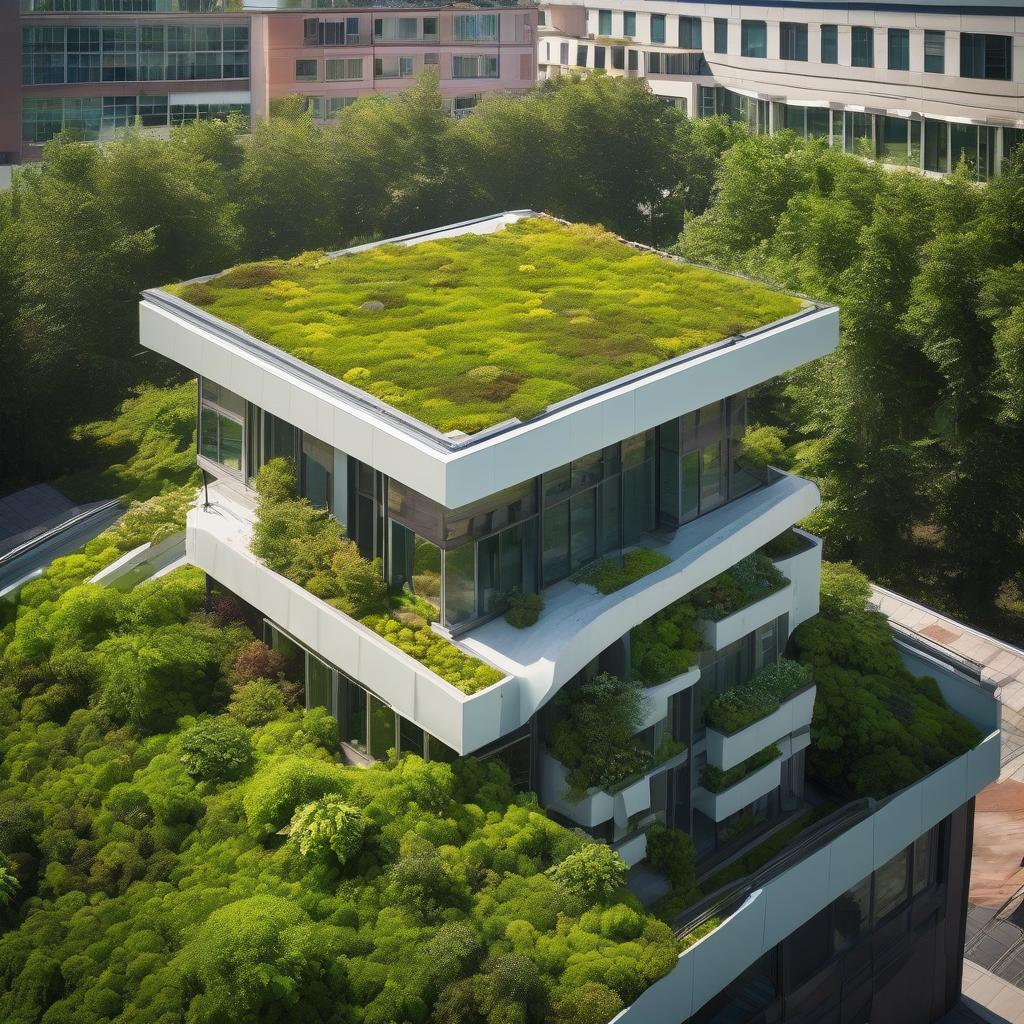Introduction
Learn the essential steps of how to build a house in Ghana with this comprehensive step-by-step guide. From planning and permits to construction and finishing touches, discover practical tips to navigate the process and successfully create your dream home in Ghana. Building your first house in Ghana is an exciting milestone, but it can also feel overwhelming.

From navigating permits to choosing the right materials, the process requires careful planning, especially in a market where costs and regulations vary widely. Whether you’re in Accra, Kumasi, or a rural community, this guide breaks down the journey into manageable steps, with practical advice tailored to Ghana’s unique challenges.
Step 1: Plan Your Project
A. Define Your Needs
- Family Size & Future Growth: Will you need rooms for extended family?
- Location: Coastal areas (e.g., Ada) require flood-resistant designs, while northern Ghana benefits from heat-reducing materials.
- Lifestyle: Open-plan kitchens, home offices, or outdoor spaces?
B. Hire Professionals
- Architects: Look for Ghana-based firms familiar with local building codes.
- Contractors: Verify licenses and past projects (ask for references!).
- Engineers: Essential for soil testing and structural integrity.
Pro Tip: Use platforms like GhFind or local Facebook groups (e.g., Ghana Home Builders) to find vetted professionals.
Step 2: Budget Realistically
Average Costs in Ghana (2024)
- Low-Cost Home: GHS 150,000–GHS 300,000 (2–3 bedrooms, simple finishes).
- Mid-Range Home: GHS 400,000–GHS 800,000 (modern amenities, quality materials).
- High-End Home: GHS 1 M+ (custom designs, imported finishes).
Budget Breakdown:
- Land: 20–30% of total cost (prices spike in Accra and Kumasi).
- Construction: 50–60% (materials, labour).
- Contingency Fund: 10–15% (for delays, price hikes, or design changes).
Cost-Saving Hack: Use laterite blocks instead of sandcrete—they’re cheaper and better insulated for Ghana’s climate.
Step 3: Secure Land & Permits
A. Land Acquisition
- Avoid Disputes: Ensure the land has a clear title and is registered with the Lands Commission.
- Soil Test: Laterite soil? Sandy soil? This affects your foundation design.
B. Building Permits
- Accra: Submit plans to the Accra Metropolitan Assembly (AMA).
- Kumasi: Visit the Kumasi Metropolitan Assembly (KMA).
- Rural Areas: Check with district assemblies.
Required Documents:
- Site plan
- Architectural drawings
- Engineer’s structural report
- Land title certificate
FYI: Permit processing takes 4–8 weeks. Don’t start digging without approval—fines are steep!
Step 4: Choose Materials Wisely
Locally Sourced Options
- Foundations: Laterite or quarry stones.
- Walls: Sandcrete blocks (common) or stabilised earth bricks (eco-friendly).
- Roofing: Long-span aluminium (durable) or coated sheets (budget-friendly).
Avoid: Cheap imported tiles—they crack under Ghana’s heat.
Step 5: Construction Phase
A. Foundation
- Strip Foundation: Ideal for most Ghanaian homes.
- Waterproofing: Critical in flood-prone areas like Ketu South.
B. Superstructure
- Walls: Use 6-inch blocks for load-bearing walls.
- Ventilation: Install large windows or “Breathable” designs to combat humidity.
C. Roofing
- Pitched Roofs: Best for heavy rainfall (common in the Volta Region).
- Flat Roofs: Add a slope to prevent water pooling.
Step 6: Install Utilities
- Electricity: Partner with ECG-approved electricians.
- Plumbing: Use PVC pipes—they resist corrosion from Ghana’s hard water.
- Water: Boreholes? Ensure your contractor tests water quality.
Step 7: Finishing Touches
- Flooring: Terrazzo (popular in Kumasi) or ceramic tiles.
- Paint: Opt for weather-resistant brands like Dulux or Crown.
- Security: Invest in burglar-proof windows and gates.
Step 8: Final Inspection
- Assembly Approval: Schedule a final check with your local authority.
- Snagging List: Fix minor issues like cracks or paint drips before moving in.
Frequently Asked Questions (FAQs)
1. How long does it take to build a house in Ghana?
- Simple Home: 6–12 months.
- Luxury Home: 18–24 months (delays are common due to rain or material shortages).
2. Can I build without an architect?
Yes, but risky! Architects ensure compliance with codes and optimise space.
3. What are the hidden costs to watch for?
- Transportation: Moving materials to remote areas.
- Land Clearing: Bushes, rocks, or debris add expenses.
4. How do I handle contractor disputes?
- Contract: Always sign a detailed agreement (payment terms, timelines).
- Mediation: Contact the Ghana Construction Industry Authority.
5. Is it cheaper to build or buy a house in Ghana?
Building is often 20–30% cheaper, but requires time and oversight.
Conclusion
Building a house in Ghana is a rewarding journey, but success lies in planning, hiring the right team, and understanding local norms. By prioritising quality materials and staying involved at every stage, you’ll create a home that’s both culturally resonant and built to last.
Need Help? Medlan Prestige offers free consultations to first-time homeowners in Ghana. [Contact us today] for a personalised quote!


